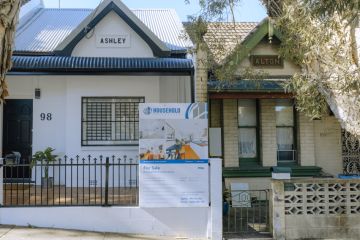Conveyancing: Can you do it yourself?

On the surface, conveyancing is a simple process of transferring title from seller to buyer. Why not do it yourself and save the cost of hiring a solicitor or professional conveyancer? You can, but you need to know what you’re doing and understand the risks involved.
Pros and cons of DIY-conveyancing
The biggest pro of DIY-conveyancing is that it can save you money. A conveyancer or solicitor will typically charge between $500 and $1,000 for their services. What are you paying them for? Besides filling out paperwork, they will review the sale contract and conduct several legal searches on your behalf. The searches do cost money, but generally not more than a few hundred dollars, so DIY-conveyancing can still save you hundreds of dollars.
Both the buyer and seller are involved in the conveyancing process and each has separate responsibilities. Whether you’re a buyer or a seller, you must know the exact procedure to follow. Conveyancing kits are available to help you through the process and most advisers recommend them. A good kit takes you step-by-step through everything you need to do and offers tips that can help you avoid making serious mistakes.
Conveyancing kits can cost up to $100, so together with the searches you need to carry out, your savings probably won’t be as great as you thought they’d be. Still, if all goes well, DIY-conveyancing will save you money. If all doesn’t go well, you will wish you had shopped around and found a reasonably priced conveyancer or solicitor. Why? Because solicitors and licensed conveyancers carry professional indemnity insurance. Their insurance protects you if something goes wrong. As a DIY-conveyancer, you risk paying a heavy fine or even forfeiting your 10 per cent deposit.
Hiring a solicitor or conveyancer
Both solicitors and licensed conveyancers are legally entitled to do conveyancing on your behalf and both are qualified to help you through the buying process. You can get competitive quotes from solicitors and conveyancers, but don’t let the cost of their service be your sole reason for choosing them. Consumer Affairs Victoria recommends:
- hiring someone you feel comfortable with whose services meet your needs
- checking their references and finding out as much as you can about their reputation
- making sure you understand how much their services are going to cost in full. They may charge a standard fee and add the cost of searches and administrative work on top of that. You want to know in advance how much it is going to cost you.
A legal practitioner must hold a current certificate or licence and a conveyancer must have a current licence to practise in your state or territory. Conveyancers cannot be licensed in Queensland or the ACT, so look for a solicitor who specialises in conveyancing if you are buying or selling property there.
Do you still want to try DIY-conveyancing? Many have successfully done it before you. Know what you’re getting into first, though, and consider your options. Is the extra protection offered by an insured professional worth paying for? If it is, their services are the final step toward securing your new home.
We recommend
We thought you might like
States
Capital Cities
Capital Cities - Rentals
Popular Areas
Allhomes
More







